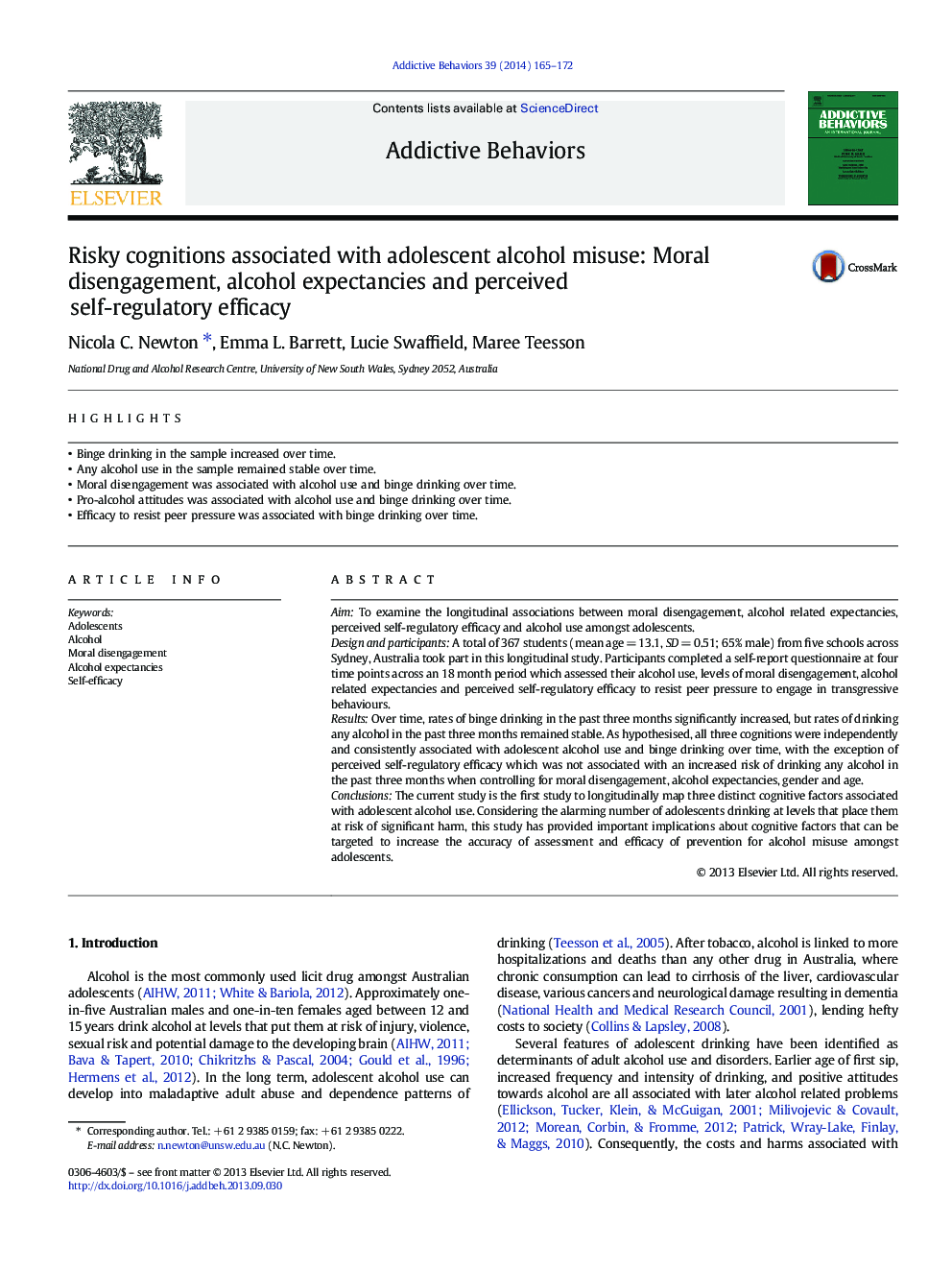| کد مقاله | کد نشریه | سال انتشار | مقاله انگلیسی | نسخه تمام متن |
|---|---|---|---|---|
| 898989 | 915352 | 2014 | 8 صفحه PDF | دانلود رایگان |
• Binge drinking in the sample increased over time.
• Any alcohol use in the sample remained stable over time.
• Moral disengagement was associated with alcohol use and binge drinking over time.
• Pro-alcohol attitudes was associated with alcohol use and binge drinking over time.
• Efficacy to resist peer pressure was associated with binge drinking over time.
AimTo examine the longitudinal associations between moral disengagement, alcohol related expectancies, perceived self-regulatory efficacy and alcohol use amongst adolescents.Design and participantsA total of 367 students (mean age = 13.1, SD = 0.51; 65% male) from five schools across Sydney, Australia took part in this longitudinal study. Participants completed a self-report questionnaire at four time points across an 18 month period which assessed their alcohol use, levels of moral disengagement, alcohol related expectancies and perceived self-regulatory efficacy to resist peer pressure to engage in transgressive behaviours.ResultsOver time, rates of binge drinking in the past three months significantly increased, but rates of drinking any alcohol in the past three months remained stable. As hypothesised, all three cognitions were independently and consistently associated with adolescent alcohol use and binge drinking over time, with the exception of perceived self-regulatory efficacy which was not associated with an increased risk of drinking any alcohol in the past three months when controlling for moral disengagement, alcohol expectancies, gender and age.ConclusionsThe current study is the first study to longitudinally map three distinct cognitive factors associated with adolescent alcohol use. Considering the alarming number of adolescents drinking at levels that place them at risk of significant harm, this study has provided important implications about cognitive factors that can be targeted to increase the accuracy of assessment and efficacy of prevention for alcohol misuse amongst adolescents.
Journal: Addictive Behaviors - Volume 39, Issue 1, January 2014, Pages 165–172
